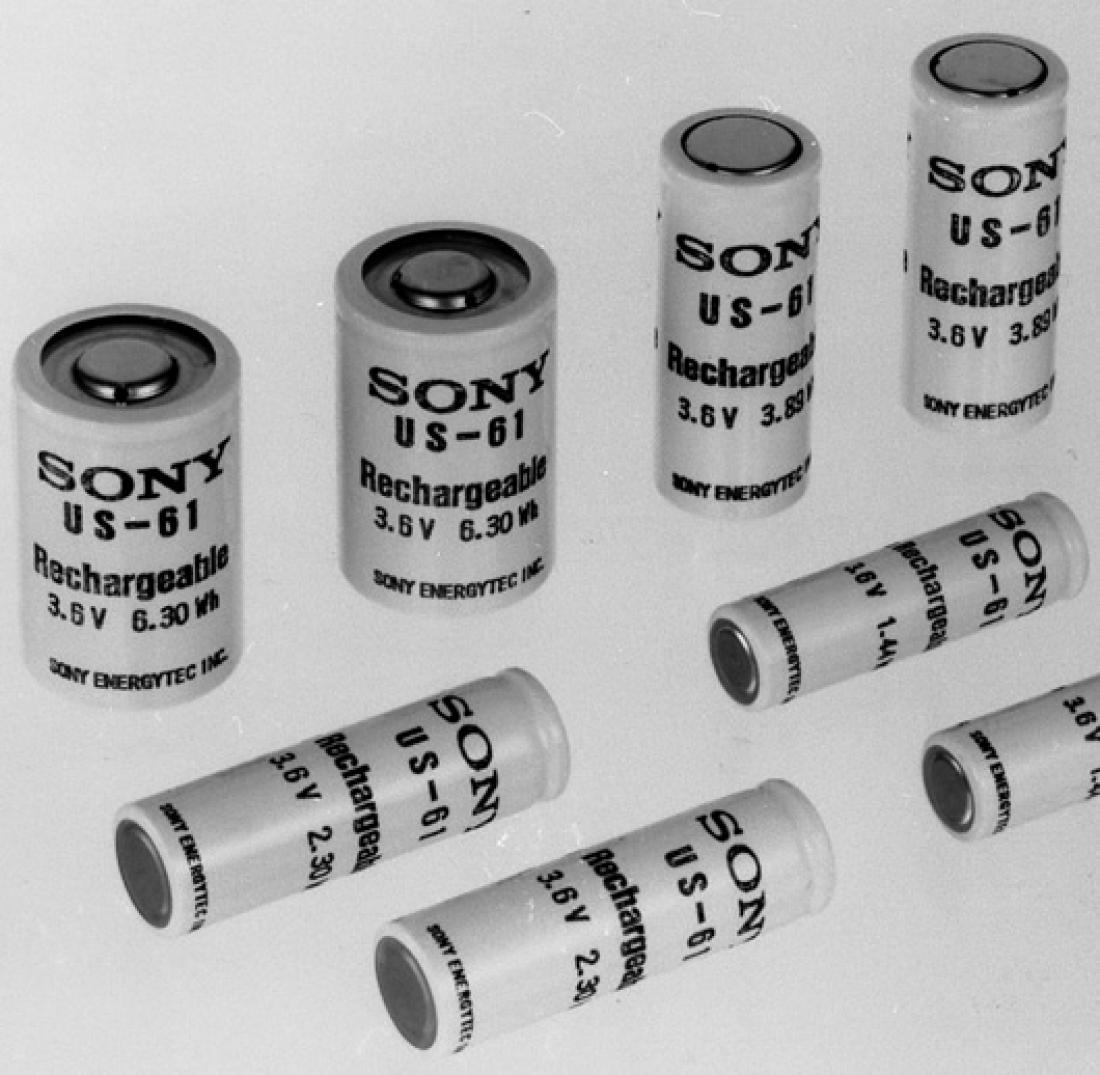The largest commercial application of solid-state ionics is lithium-ion batteries, which Sony commercialized around 1990. The lithium-ion batteries pictured were used in some of the early Kyocera cellular phones.
‘Solid-state ionics’ first appeared in 1971 in another of his papers, and was likely a play on ‘solid-state electronics’, another rapidly growing field at the time. Over the decades, Japanese researchers have expanded the understanding of ionic conduction in solid compounds involving lithium, sodium-sulphur and perovskite structures. These findings have led to the development of a variety of sensors and batteries, many of which are designed or manufactured in Japan, according to a review in Science and Technology of Advanced Materials. For example, Sony first commercialized lithium-ion batteries in 1990. NGK Insulators, Ltd. commercialized sodium-sulphur batteries to store renewable energy in 2002. Japan also supplies two-thirds of the world’s zirconia-based oxygen sensors, which help control combustion conditions in cars.
Further information
Professor Osamu Yamamoto | E-mail: [email protected]
Graduate School of Engineering
Mie University
Mikiko Tanifuji | E-mail: [email protected]
Science and Technology of Advanced Materials
National Institute for Materials Science
-----------------------------------------------------------------------------
Asia Research News is our annual magazine to highlight exciting research studies from our partners. 25,000 copies are printed and distributed to key figures in research. Download a PDF copy from the link below or contact us if you would like print copies.



